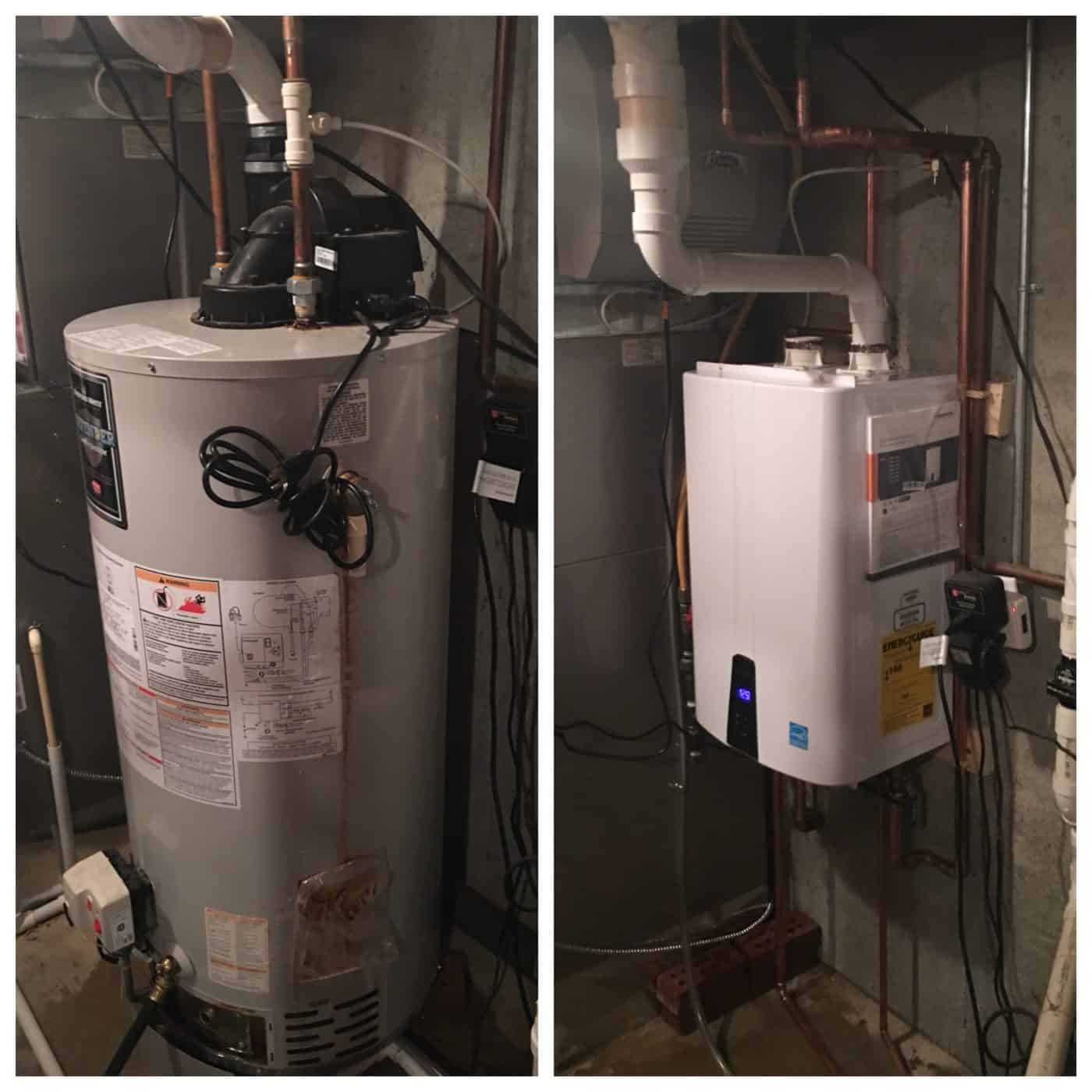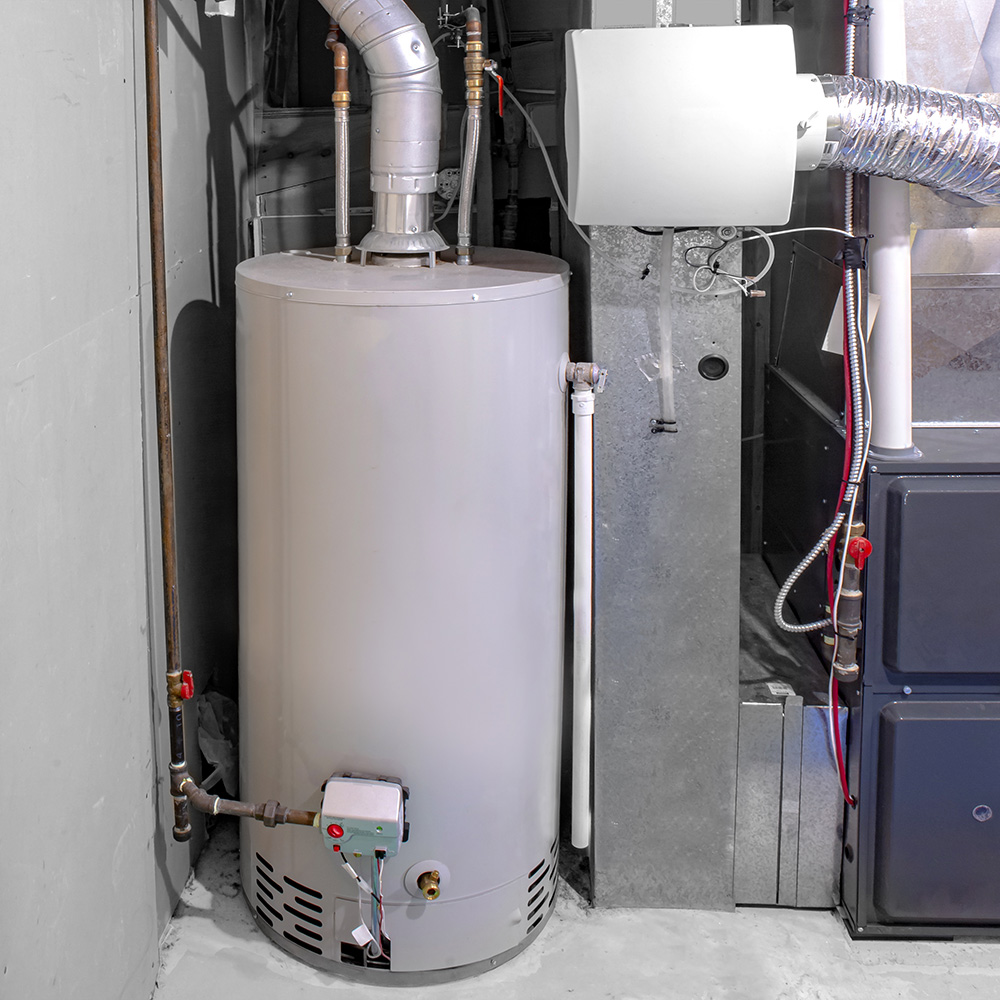Yes, you should replace your 30-year-old water heater. It is likely inefficient and prone to failure.
Water heaters lose efficiency and reliability over time. A 30-year-old unit is well beyond its expected lifespan. Modern water heaters offer better energy efficiency and safety features. Replacing an old water heater can reduce energy bills and provide more reliable hot water.
Old units are also more prone to leaks and catastrophic failure. New models are more environmentally friendly and often come with better warranties. Upgrading ensures consistent hot water, peace of mind, and potential cost savings. Investing in a new water heater is a wise decision for long-term benefits and safety.

Credit: www.reddit.com
Page Contents
Signs Of Aging Water Heaters
A 30-year-old water heater likely shows signs of aging, such as inconsistent temperatures and unusual noises. Rusty water and frequent repairs also indicate it might be time for a replacement.
Visible Rust
Rust is a clear sign of an old water heater. Rusty water means the tank is corroding. Corrosion can lead to leaks. Leaks can cause water damage in your home. Rust spots on the tank are also bad. These spots weaken the tank’s structure. Weak tanks can burst and flood your home. Replacing a rusty water heater is important.
Unusual Noises
Old water heaters make strange noises. Popping sounds are common. These sounds mean sediment has built up. Sediment reduces the heater’s efficiency. Sediment can also damage the tank. Banging noises are another sign. These noises mean parts are loose. Loose parts can cause the heater to break. Replacing an old, noisy water heater is a smart choice.

Credit: www.cartersmyplumber.com
Energy Efficiency Concerns
A 30-year-old water heater uses more energy. This leads to higher energy bills. Newer models are more energy-efficient. Old heaters may cost more in the long run. Replacing it can save money.
New water heaters come with Energy Star ratings. These ratings show the efficiency of the heater. A higher rating means more savings. An old water heater likely lacks this rating. Upgrading can improve energy efficiency.
Safety Risks
Old water heaters pose significant safety risks, including potential leaks and water damage. Regular maintenance or replacement ensures a safer home.
Leakage Issues
Old water heaters often leak. Leaks can cause water damage to floors and walls. Small leaks can grow into bigger problems. Rusty water is a sign of leaks inside the heater. Leaks can also lead to mold growth. Mold is harmful to health. Fixing leaks can be costly.
Carbon Monoxide Leaks
Gas water heaters can leak carbon monoxide. Carbon monoxide is a silent killer. It has no smell or color. Poor venting or old parts can cause leaks. Symptoms of poisoning include headache and dizziness. Carbon monoxide detectors are a must. Replacing old heaters can prevent these dangers.
Cost Analysis
Repairing a 30-year-old water heater can be expensive. Parts may be hard to find. Labor costs add up quickly. Older units often need frequent repairs. This can lead to high bills over time. Some repairs might only be temporary solutions.
Replacing a water heater can cost more upfront. Newer models are more energy-efficient. This can save money on energy bills. Modern units also come with warranties. This provides peace of mind. A new water heater can last many years with proper care.
Modern Water Heater Options
Tankless water heaters provide hot water on demand. They are more energy-efficient than traditional models. These units save space and have a longer lifespan. No need to store hot water. This reduces energy waste. Many homeowners choose tankless models for these reasons.
Solar water heaters use the sun’s energy to heat water. This makes them very eco-friendly. They can reduce electricity bills significantly. Solar heaters work best in sunny locations. Installation may be costly, but savings over time make it worth it. Solar heaters also have low maintenance needs.
Environmental Impact
Old water heaters use a lot of energy. New models are much more efficient. Replacing your old heater can save you money. It can also help the planet. New heaters use less electricity or gas. This means less pollution in the air. Lower energy bills are a nice bonus too.
Consider eco-friendly water heaters. Solar water heaters use the sun’s power. Heat pump water heaters are also efficient. They use less energy than traditional ones. Tankless water heaters heat water on demand. This means no wasted energy. These options are good for the environment. They can also save you money over time.
Maintenance Tips For Longevity
Check your water heater often. Look for leaks and rust. Listen for odd noises. This helps find problems early. Fixing small issues is easier. It saves money too.
Drain your water heater tank once a year. This removes sediment buildup. Sediment reduces efficiency and lifespan. Use a hose to drain the tank. Follow the manufacturer’s instructions. Always turn off the power before starting.
Making The Decision
Experts often suggest replacing a water heater after 10-15 years. A 30-year-old water heater may not work well. It could also be a safety risk. Newer models are more energy-efficient. This means they can save you money on energy bills. Professional plumbers can give you specific advice for your situation.
Think about how well your current water heater works. Does it heat water quickly? Does it make strange noises or leak? If yes, it may be time for a new one. Family size and water usage are also important. A larger family may need a bigger, more efficient water heater.

Credit: www.homedepot.com
Frequently Asked Questions
Can A Water Heater Last 30 Years?
Yes, a water heater can last 30 years, but it’s rare. Regular maintenance and high-quality units increase longevity.
Should I Replace A 25 Year Old Hot Water Heater?
Yes, replace a 25-year-old hot water heater. Older units are less efficient and more prone to failure. Newer models offer better energy savings and reliability.
What Happens If You Don’t Replace Your Water Heater?
Neglecting to replace your water heater can lead to leaks, inefficient heating, and potential flooding. Old units may also cause higher energy bills and reduced water quality. Regular maintenance and timely replacement ensure safety and efficiency.
How Do You Know When A Hot Water Heater Needs To Be Replaced?
Signs include inconsistent hot water, strange noises, rusty water, frequent repairs, and a unit older than 10-15 years.
Conclusion
A 30-year-old water heater can be inefficient and costly. Replacing it can save energy and reduce bills. Modern units offer better performance and safety features. Consider a new water heater for peace of mind and improved efficiency. Make the smart choice for your home and upgrade today.
